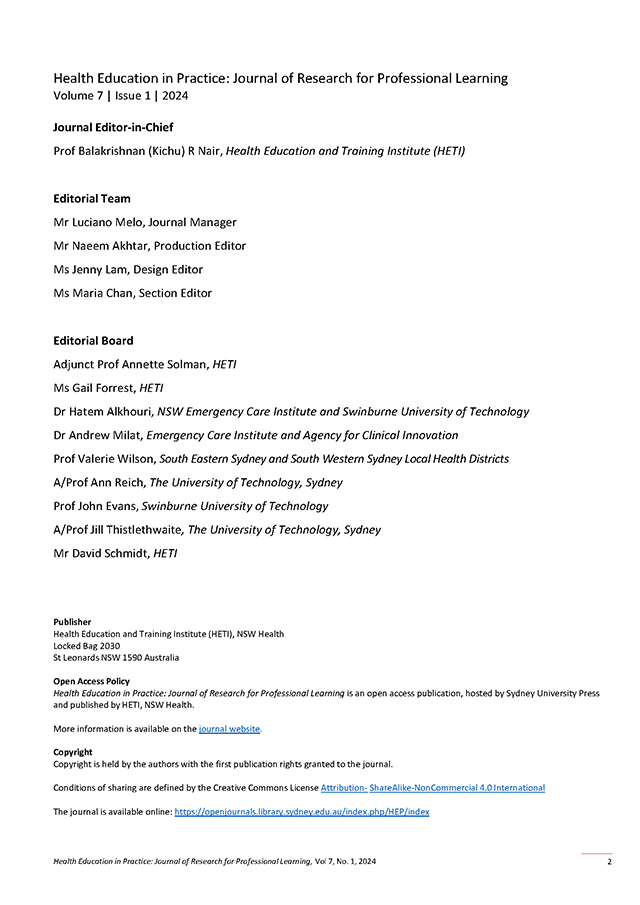Feasibility of personalised online learning programs aligned with authentic workplace practice
DOI:
https://doi.org/10.33966/hepj.7.1.18088Abstract
Introduction: Online learning is an accessible method that enables medical practitioners to undertake training to develop new, and reinforce existing, knowledge and skills. Early career medical practitioners may find engaging in online learning particularly beneficial as they have a stronger motivation to refine knowledge and skills than their more senior peers. One under-explored mechanism to strengthen the delivery of online learning for medical practitioners is the use of clinical data to tailor learning so it is closely aligned with the individual health professional’s clinical practice.
Methodology: This study aimed to evaluate the feasibility of personalising an online learning program for early career doctors working in oncology using electronic medical record (EMR) data. An online program was developed by clinical domain experts that could be triggered using pathology orders and/or results closely aligned to when the test was ordered in clinical practice. The program content was designed to cover three categories: (1) test ordering, (2) interpreting test results, and (3) patient management. Early career medical practitioners undergoing oncology training were recruited to participate in the study. The program was evaluated using metrics captured by the online learning platform, and a post-program survey.
Results: All early career medical practitioners eligible to participate in the study consented to participate (n=5). It was feasible to personalise the online program using pathology ordering data. Further, analysis of survey responses indicated that personalising an online learning program using EMR data was acceptable to early career doctors and facilitated engagement with the course.
Conclusion: Personalising an online learning program for early career medical practitioners in cancer care using electronic health-record data is both feasible and acceptable.
Downloads
Published
Versions
- 2024-08-07 (2)
- 2024-08-07 (1)

